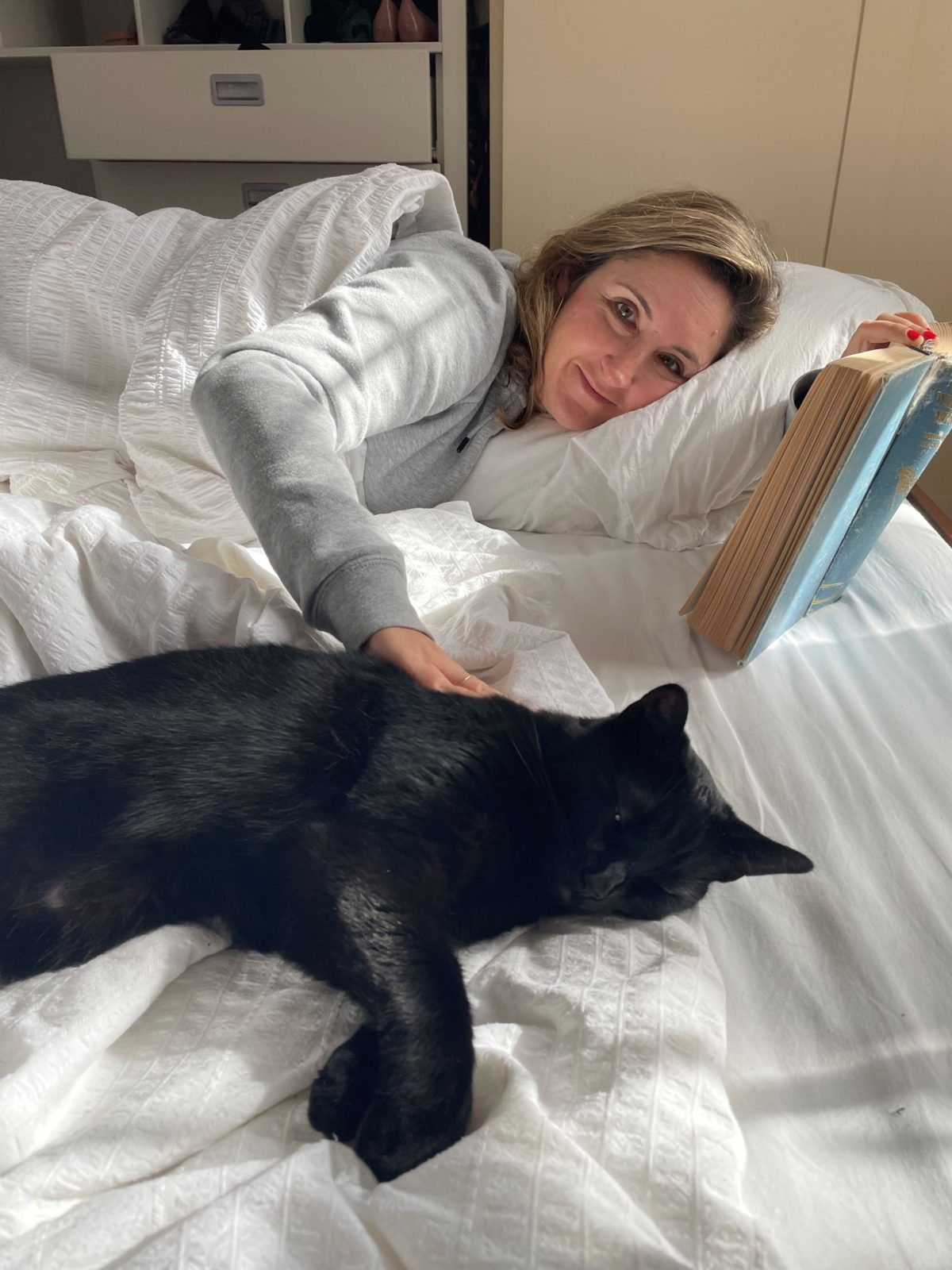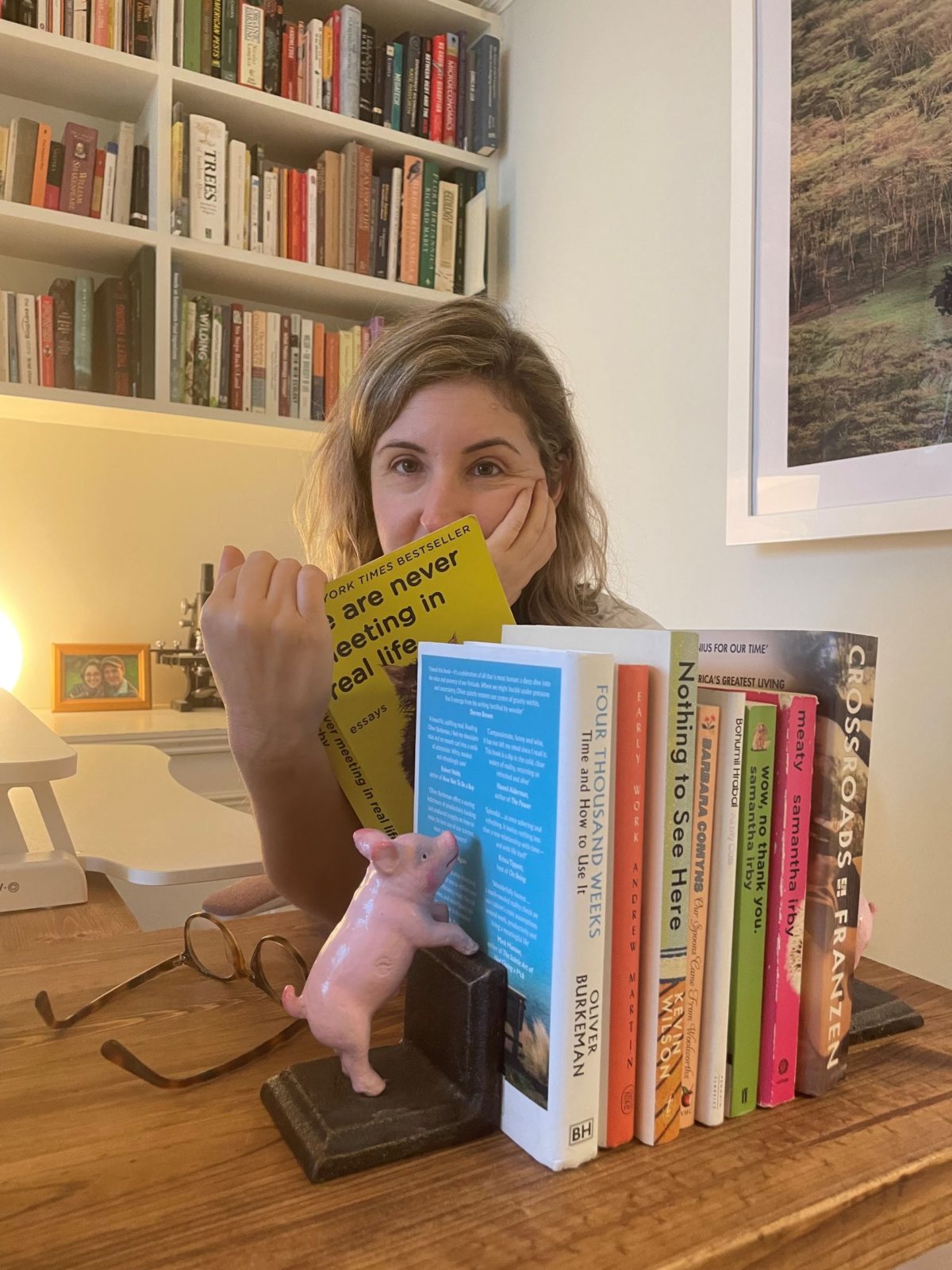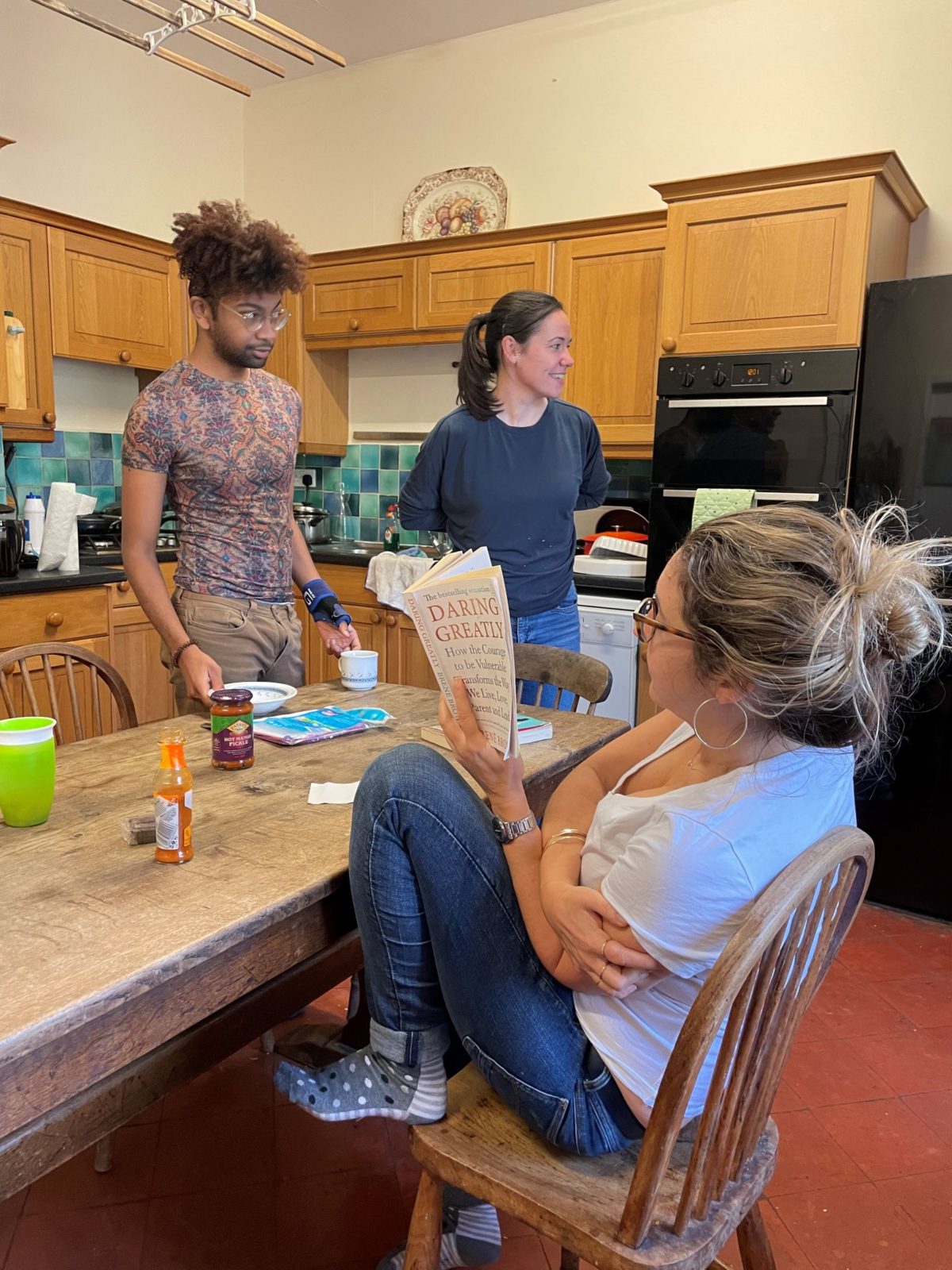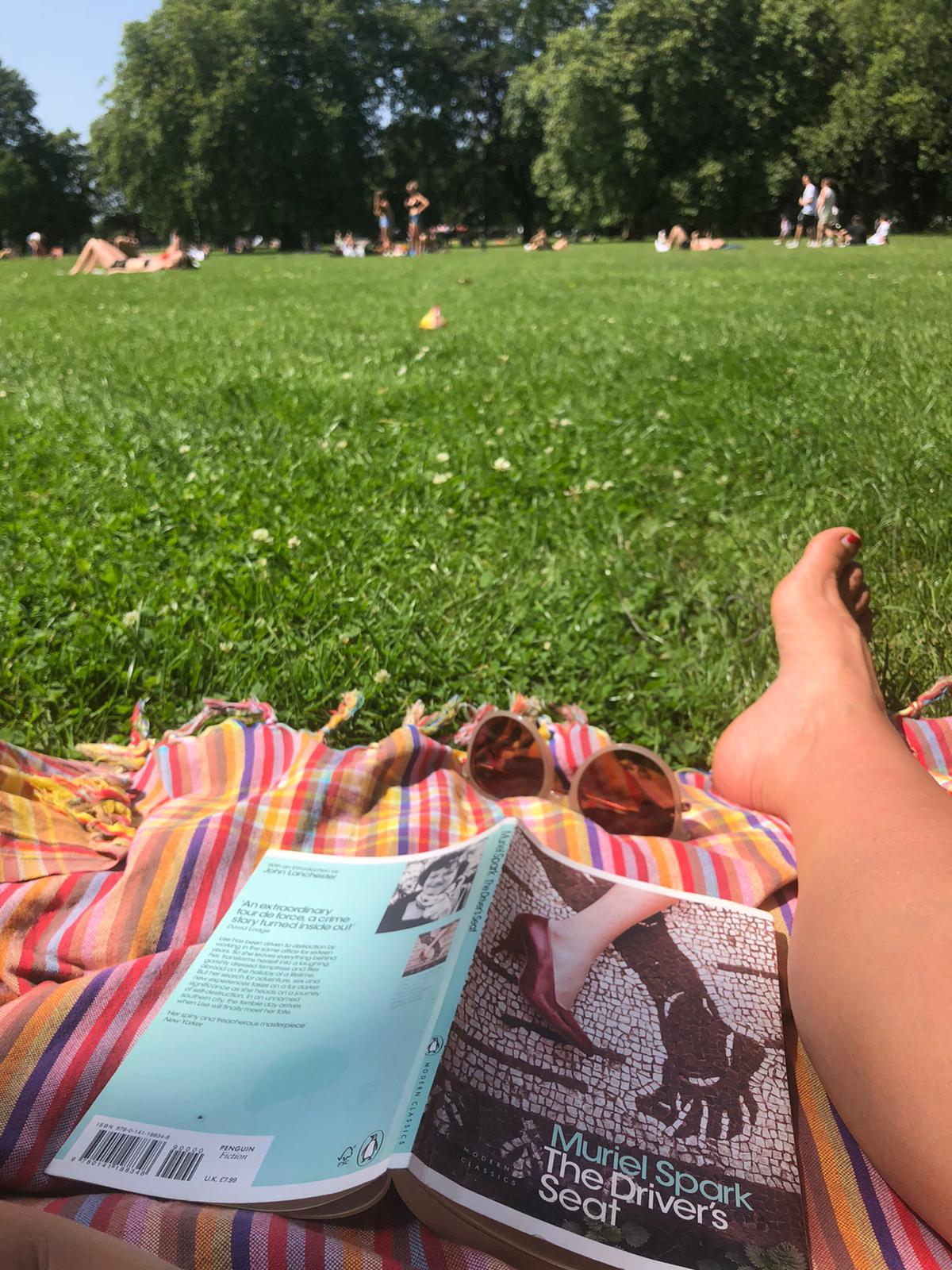A re-read of this in the middle of the night
Category: Uncategorized
PERSUASION by Jane Austen
A re-read of this when getting better from COVID
NOTED ON A SCANDAL by Zoe Heller
Just a re-read of this when sick in bed.
GONE WITH THE WIND by Margaret Mitchell
GONE WITH THE WIND is a book both profoundly woke and un-woke. The un-woke part is very famous. The main characters are slave owners and slave apologists, and it is fascinating to see how they construct a world in which they can still live with themselves. It’s wild to see people living their daily lives while committing atrocities. The woke part I rarely see discussed, but for me it’s pretty woke: and that’s the character of Scarlett O’Hara. I can’t think of a book previous to this that has a female character who clearly and explicitly manipulates being female to her advantage. I also can’t think of an earlier female character who makes her own money and is proud of it.
Also interesting, and I think something you rarely see written about, is the really horribly mean act of keeping someone dangling. Ashley Wilkes does it to Scarlett O’Hara, and it’s really sad. I think this happens a lot: you enjoy someone else having a crush on you, because you like the attention, so instead of doing the kind thing (making it clear they have no hope, so they can get over you), you keep it going, enjoying the validation, and making them go slowly crazy. Meanwhile you act all innocent like they are the pathetic one.
WHAT I READ IN 2021
The blog tells me I read 67 books this year, one more than last year, and more than any year since 2011. One reason I keep this blog is as a reminder not just of the books, but of what the books carry with them, which is memories of where they were read. PREP, first book of the year, was in a Zimbabwean garden. SHUGGIE BAIN was read in part at a London coffee shop when we were finally allowed outdoor dining again. LEAVING CHEYENNE I bought in a tourist trap in South Dakota. ZINKY BOYS was the beach in Croatia. WOW, NO THANK YOU was a flight to Corfu. MEATY was a five hour delay in Amsterdam airport.
I did an unusually large number of re-reads of old and beloved friends (EARLY WORK, THE LOVE AFFAIRS OF NATHANIEL P, THE PURSUIT OF LOVE, and NOTHING TO SEE HERE). I used to not re-read, but I do it increasingly. I think because I realize that there are not so many good ones out there in the world to be found. I also read a larger amount of non-fiction and self-help (I can recommend FOUR THOUSAND WEEKS if you want to feel like blowing up your life). Mostly it was fiction though, and it was a banner year. I struggled to narrow the list of my favourties, so did not bother:
Every book SAMANTHA IRBY has written: (here, here, and here). I put off this writer for some time, having the impression this was a book of essays was – as so many are – a book of thinly disguised lectures about gender/race/etc. In fact they are a brilliantly sad and funny, and make you feel less alone in the world.
UNDER THE SKIN by Michael Faber. A story about aliens, but from the aliens’ perspective. Let me tell you, whatever you think it is about, it is not about that. Just drop everything and read immediately
OUR SPOONS CAME FROM WOOLWORTHS by Barbara Comyns. A thinly disguised story of her own first marriage. She wants to be an artist, and she marries an artist, but once a baby comes apparently what she wants doesn’t matter anymore. A timeless story of being f*cked by gender roles, and very funny. My one favourite part is that her husband, who to be fair to him, really SUFFERS for his art as he leaves his wife and child to starve, was not a success and is now totally forgotten. My other favourite part is the amazing biography of the author on the first page, which covers her careers including poodle breeding, house selling, and painting, showing you do not need to sacrifice all to art to be an artist.
ALL MY CATS by Brohumil Hrabal. I don’t know if I enjoyed it, but I thought about it a lot. It’s one of the only books I’ve ever read about our relationship to our pets, and it investigates how difficult it is to keep boundaries around love
So far these are all backlist (and in Comyns case, almost a century old), but I also enjoyed the American and British blockbusters this year, CROSSROADS by Jonathan Franzen, and SHUGGIE BAIN by Douglas Stuart. It’s fashionable to hate on Franzen, and I get the impulse, but I think we have to give it up: the man can write.
Here’s to having less time to read in 2022 because COVID will be OVER.
The list:
FOUR THOUSAND WEEKS by Oliver Burkeman
SOMETIMES I TRIP ON HOW HAPPY WE COULD BE by Nichole Perkins
BABURNAMA by Babur trans. Annette Beveridge
THE GRAND SOPHY by Georgette Heyer
WISE BLOOD by Flannery O’Connor
WE ARE NEVER MEETING IN REAL LIFE by Samantha Irby
ONE FAT ENGLISHMAN by Kingsley Amis
SWEET SORROW by David Nicholls
THE DUD AVOCADO by Elaine Dundy
THE MAN IN THE HIGH CASTLE by Philip K Dick
CROSSROADS by Jonathan Franzen
STAY SEXY AND DON’T GET MURDERED by Karen Kilgariff and Georgia Hardstark
BEAUTIFUL WORLD, WHERE ARE YOU by Sally Rooney
OUR SPOONS CAME FROM WOOLWORTHS by Barbara Comyns
SH*T MY DAY SAYS by Justin Halpern
THE ANIMALS IN THAT COUNTRY by Laura Jean McKay
FOREIGN AFFAIRS by Alison Lurie
WOW, NO THANK YOU by Samantha Irby
AND THEIR CHILDREN AFTER THEM by Nicolas Mathieu
ZINKY BOYS by Svetlana Alexievich
LITTLE HOUSE ON THE PRAIRIE by Laura Ingalls Wilder
THE LYING LIFE OF ADULTS by Elena Ferrente
FALSE COLOURS by Georgette Heyer
THE PURSUIT OF LOVE by Nancy Mitford
WINTER IN THE BLOOD by James Welch
LEAVING CHEYENNE by Larry McMurtry
CROSSING SAFELY by Wallace Stegner
THE TRIALS OF RUMPOLE by John Mortimer
THE DEVIL IN THE FLESH by Raymond Radiguet
LOVE LETTERS by Virginia Woolf and Vita Sackville-West
THE DRIVER’S SEAT by Muriel Spark
ALL MY CATS by Brohumil Hrabal
BATH TANGLE by Georgette Heyer
A BURNT-OUT CASE by Graham Greene
STRANGER IN THE SHOGUN’S CITY by Amy Stanley
LITTLE EYES by Samantha Schweblin
UNDER THE SKIN by Michael Faber
COMING UP FOR AIR by George Orwell
THE LOVE AFFAIRS OF NATHANIEL P by Adelle Waldman
SHUGGIE BAIN by Douglas Stuart
THE ENDS OF THE EARTH by Abbie Greaves
THE SUBTLE ART OF NOT GIVING A F*CK by Mark Manson
STORM OF STEEL by Ernst Junger
NOTHING TO SEE HERE by Kevin Wilson
THE LAST PICTURE SHOW by Larry McMurtry
SOME TAME GAZELLE by Barbara Pym
AN OBEDIENT FATHER by Akhil Sharma
THE INVENTION OF NATURE by Andrea Wulf
THE HANDMAID’S TALE by Margaret Atwood
WAR AND TURPENTINE by Stefan Hertmans
DEPT OF SPECULATION by Jenny Offill
DARING GREATLY by Brene Brown
Here is a famous self-help book that I decided to give a whirl. The first three chapters were kind of good, but then it got kind of repetitious. The insight is basically that we often do not reach our full potential because we are too afraid of taking a risk, and espeially the risk of what other people will think.
This is a painfully true observation. The worst part I think is that probably we are often not even aware that we are limiting ourselves. If it was conscious, it would be easier to change. So I guess we have to continually challenge ourselves to remember it. I could tell you a lot more about what’s in the book, but the idea is best expressed in the speech by Theordore Roosevelt after which it is named. If you’ve never read it, here it is, you can thank me later:
It is not the critic who counts; not the man who points out how the strong man stumbles, or where the doer of deeds could have done them better. The credit belongs to the man who is actually in the arena, whose face is marred by dust and sweat and blood; who strives valiantly; who errs, who comes short again and again, because there is no effort without error and shortcoming; but who does actually strive to do the deeds; who knows great enthusiasms, the great devotions; who spends himself in a worthy cause; who at the best knows in the end the triumph of high achievement, and who at the worst, if he fails, at least fails while daring greatly, so that his place shall never be with those cold and timid souls who neither know victory nor defeat.
THE GRAND SOPHY by Georgette Heyer
Just a re-read of this, while I was recovering from a cold.
ZINKY BOYS by Svetlana Alexievich
An unexpectedly topical read about military misadventure in Afghanistan. There are many to choose from; this is the Soviet one in the 1980s. Alexievich, a Nobel winner I had never heard of, puts together first hand accounts from the Russians who served. It is exceedingly gnarly. At least the American soldiers were provided with the basics. Here is a Russian nurse:
Our boys sold (their hospital camp beds). And I couldn’t really blame them. They were dying for three roubles a month – that was a private’s pay. Three roubles, meat crawling with worms, and scraps of rotten fish. We all had scurvy, I lost all my front teeth. So they sold their blankets and bought opium, or something sweet to eat, or some foreign gimmicks . . . . . the officers drank the surgical spirit so we had to use petrol to clean the wounds.
Almost all the soldiers were exceedingly young recruits, sent with little training, who were told they were going to build a glorious socialist future for their Afghan brothers who welcomed them.
When they died, sent back in Zinc coffins (thus their nickname) no one was allowed to say where they died, or that it was even a war. Later, the survivors were blamed for being involved. The extent of their disillusion is perhaps the most depressing part of this book.
I’m ashamed that in my finals I got an ‘A’ in Scientific Communism for my critique of bourgeois pluralism. I’m ashamed that after the Congress of People’s Deputies pronounced this war a disgrace we were given ‘Internationalist Fighters’ badges and a Certificate from the Supreme Soviet
Putting you life on the line to end bourgeois pluralism. You want to laugh. At the same time, it’s sad how difficult it would now be to convince anyone to die for an ideal. And especially me. I can’t think of any concept for which I’d be willing to lay down my life.
THE DRIVER’S SEAT by Muriel Spark
Here is good writing put to little effect. It tells the story of a woman called Lise who goes on a mini-break, hoping to meet ‘the one.’ The author tells us from the beginning that Lise will end up murdered. The ‘one’ she is looking for is the one who will kill her, as she wants to die. Eventually, she lucks out and meets a man recently released from an asylum. Here they are shortly after meeting:
“Sex is normal,” he says. “I’m cured. Sex is all right.”
“It’s all right at the time and it’s all right before,” says Lise, “but the problem is afterwards. This is, if you aren’t just an animal. Most of the times, afterwards is pretty sad.”
Yes, it’s red flags galore.
She tells him she just wants to be murdered, not raped; he can do that ‘after.’ However, once they are alone in the dark park, he does his raping first. As to why, there I can’t help you. Men will need to be explaining their issues on that one.
Anyway, I found it kind of lame, despite objectively being unable to deny it was wonderfully written. Partly, not to be all woke about it, but all of this begging to die seemed a bit victim blame-y. You can die on your holidays without going looking for it. I think though my issues were less socio-political than artistic. The whole book was written at a sort of bizarre kind of remove. I think the introduction has it:
. . .the great flaw in post-modernism, however, has always been that the writer’s freedom to expose the fictionality of fiction tends to be precisely paralleled by the reader’s freedom not to care what happens in the book.
I mean, yup.
A BURNT-OUT CASE by Graham Greene
Here is an architect who decides that the best place to handle his existential crisis is a leper colony in the DRC.
I love Graham Greene. Going backwards through my blog, I realize this is my ninth book of his. And I’m sorry to say my least favourite. He is all about lost men racked with guilt (which usually, for some reason, I apparently love) but this one was really a bridge too far.
First of all, I’m not going to say the DRC is like an ideal holiday location, but he comes it a bit strong here, calling it ‘a continent of misery and heat.’ Second of all, it is a bit hard to sympathise with you about losing your faith when you are going on about it among lepers who have lost their hands and feet.






